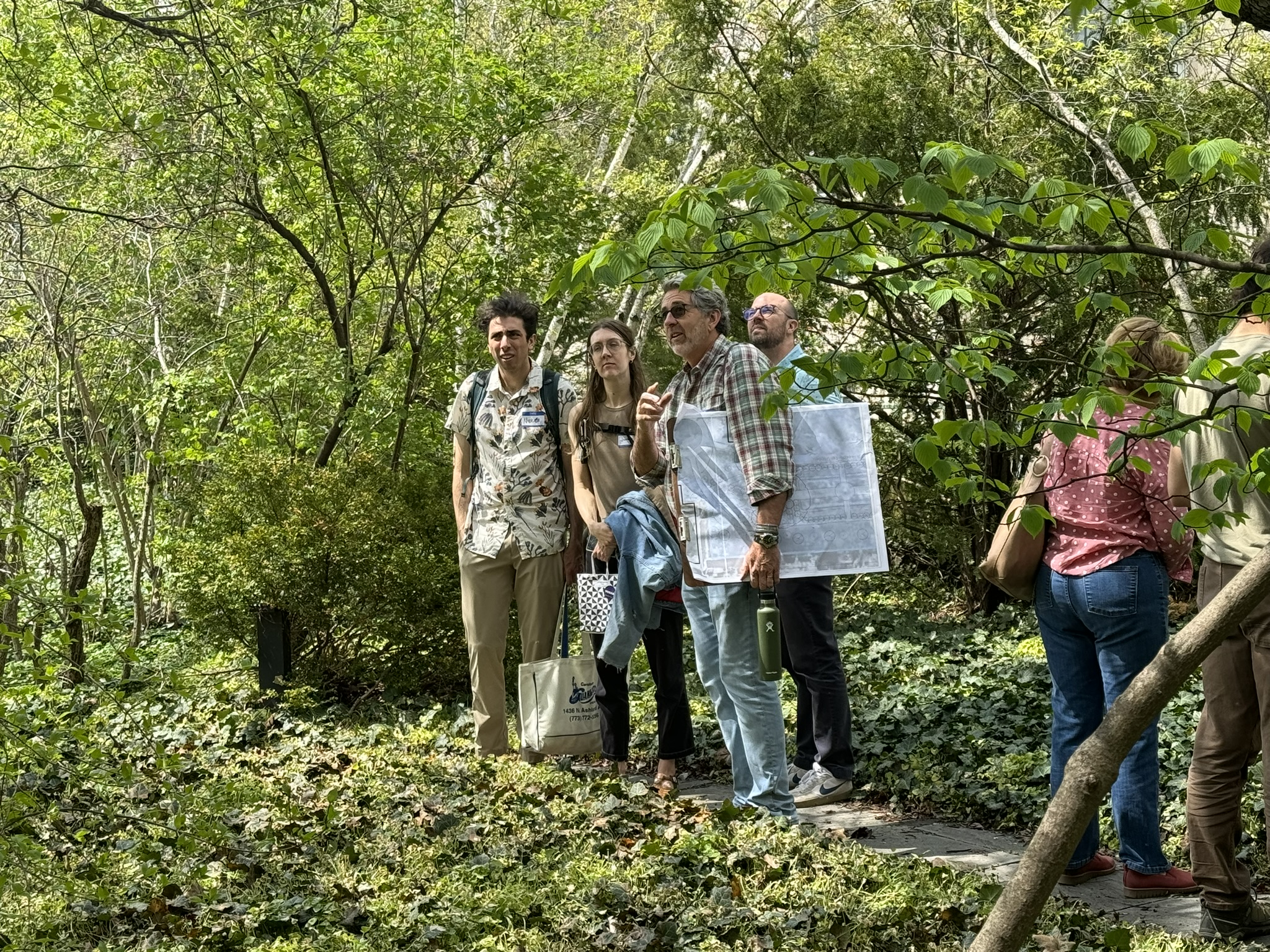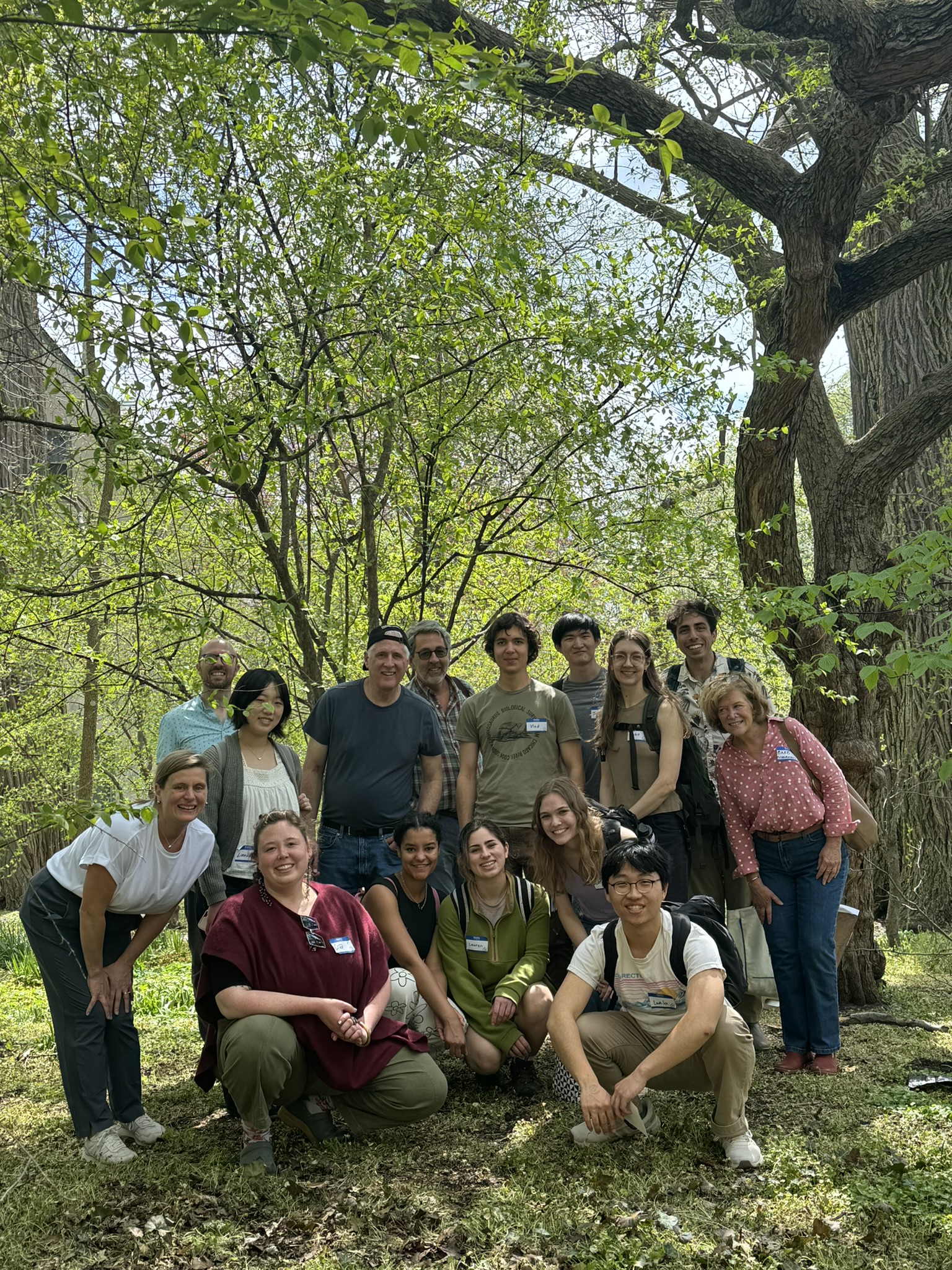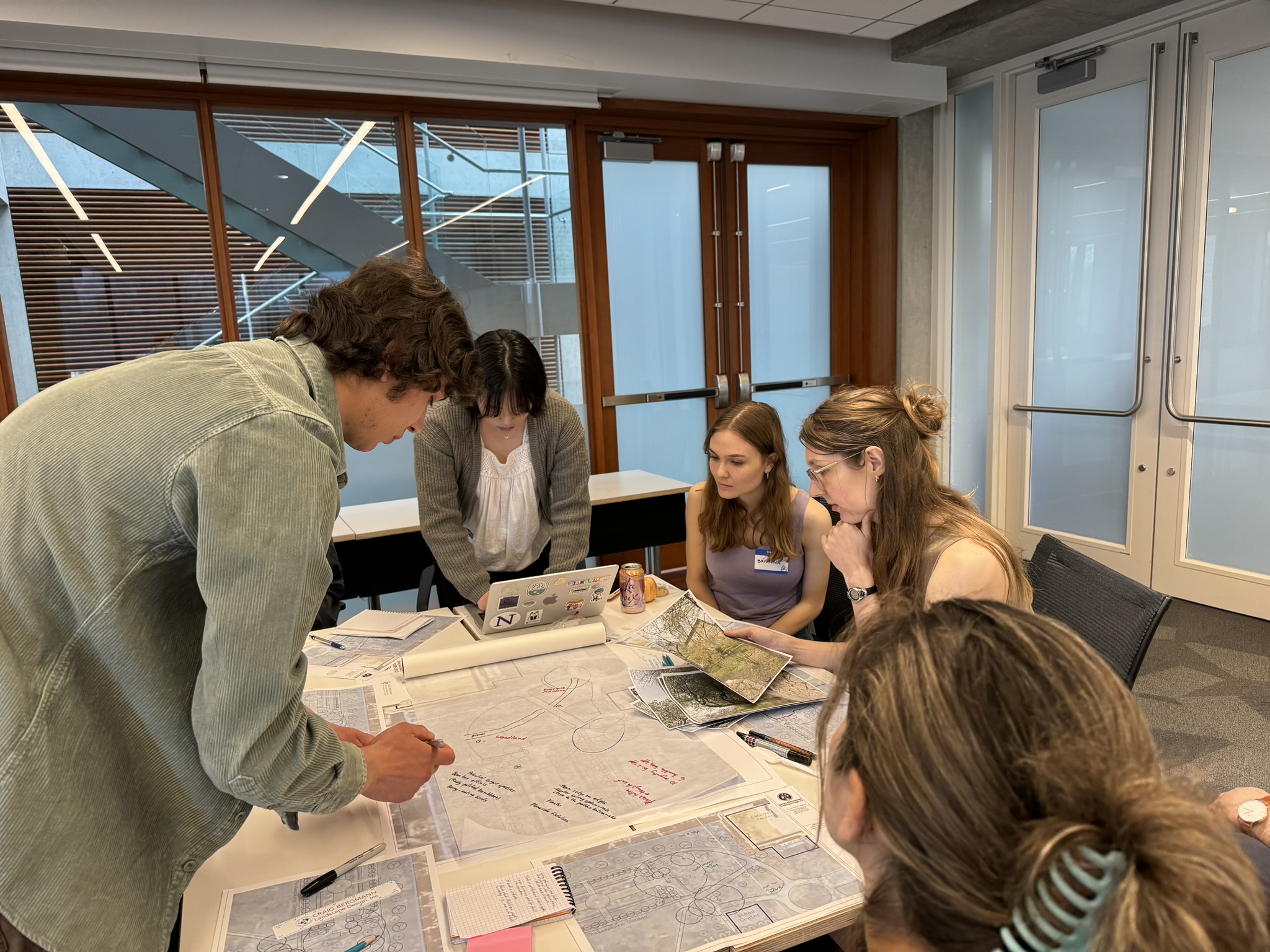Restoring Shakespeare Woods
Restoration ecology, the practice of repairing disturbed ecosystems, is an essential tool for combating environmental degradation, improving biodiversity and supporting ecosystem functions like pollination and clean air. At Northwestern, this practice is being put into action through the restoration of Shakespeare Woods, the woodland area located east of the campus landmark, Shakespeare Garden.
environmental degradation, improving biodiversity and supporting ecosystem functions like pollination and clean air. At Northwestern, this practice is being put into action through the restoration of Shakespeare Woods, the woodland area located east of the campus landmark, Shakespeare Garden.
This project is a unique opportunity for members of the campus community to gain first-hand experience in the complexities of a small-scale restoration project. From assessing the site’s current condition to ensuring the right native plant species are introduced and maintained, this project touches every aspect of ecological restoration.
 The Shakespeare Woods restoration planning effort empowered a group of students and staff to play an integral role in shaping the landscape. Facilitated by Northwestern’s Facilities Planning and sustainNU, and made possible through the support of Paula M. Trienens Institute for Sustainability and Energy, the project engaged a diverse group of stakeholders, including Groundskeeping Staff, the Prairie Cats Ecological Restoration Club, the NU Plant Biology Program, ASG Sustainability Committee, the Garden Club of Evanston, and a design team from Craig Bergmann Landscape Design. Through workshops and charrettes, students, staff, and community members came together to guide the vision and design of the space.
The Shakespeare Woods restoration planning effort empowered a group of students and staff to play an integral role in shaping the landscape. Facilitated by Northwestern’s Facilities Planning and sustainNU, and made possible through the support of Paula M. Trienens Institute for Sustainability and Energy, the project engaged a diverse group of stakeholders, including Groundskeeping Staff, the Prairie Cats Ecological Restoration Club, the NU Plant Biology Program, ASG Sustainability Committee, the Garden Club of Evanston, and a design team from Craig Bergmann Landscape Design. Through workshops and charrettes, students, staff, and community members came together to guide the vision and design of the space.
The Shakespeare Woods restoration focuses on removing invasive plants and replacing them with native species, thereby providing habitat for local wildlife, including the endangered rusty-patched bumblebee. The plan resulting from the design effort incorporates ecological and aesthetic considerations, while accounting for the practicalities of maintenance and budget constraints. 
Current and future phases of the restoration involve invasive species control, pathway construction, and the installation of both woody and herbaceous plants. As the space transforms, the campus community will be able to witness the effects of ecological succession, a natural process by which ecosystems recover over time following a disturbance. The introduction of new plant species, the arrival of new insects, and the evolution of the landscape’s soundscape with bird and insect calls, will provide plenty of natural changes to witness. This ongoing transformation offers an opportunity for reflection and mindfulness—an important moment of connection to nature. The next time you find yourself near Shakespeare Woods, please take a moment to venture in and observe.